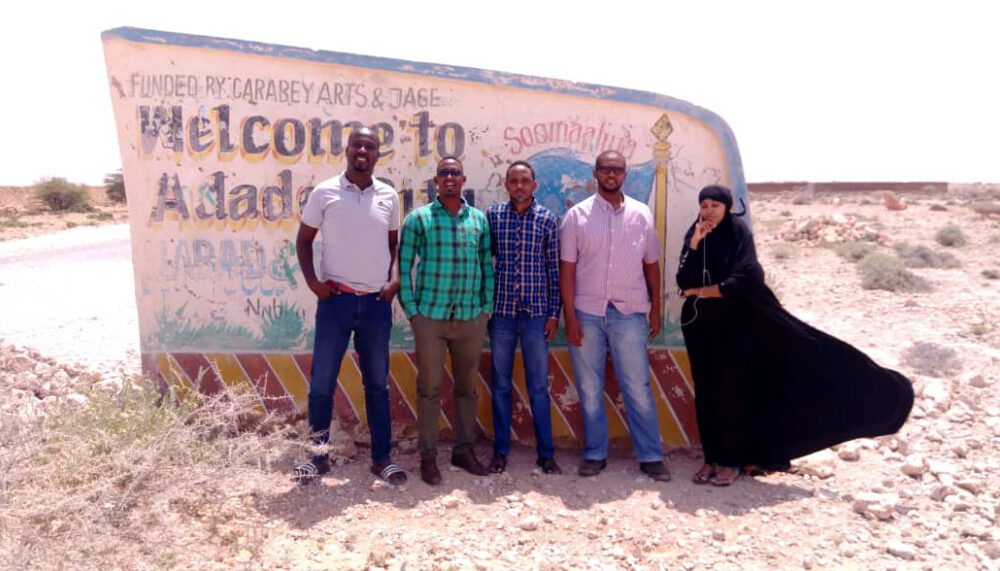PAST PROJECT
Somalia: Supporting stabilisation and the political and social cohesion of Galmudug State through multi-track dialogues

The project seeks to support the stabilisation of Galmudug through a multi-track approach to dialogue, which supports the cohesion of Galmudug society.
Timeframe: 2019 - 2020
Against the backdrop of the protracted implementation of the peace agreement between Ahlu Sunna Wal Jama’a (ASWJ) and the Galmudug authorities and looming risk of conflict escalation, the project seeks to support the stabilisation of Galmudug through a multi-track approach to dialogue, which supports the cohesion of Galmudug based on the needs of the principal actors as well as the whole of society in Galmudug.
The project focuses on three principal tracks. A 1.5 track seeks to address the grievances of the main actors in Galmudug through trust building workshops. Second, a track 2 will provide inclusive spaces to discuss the main contentious issues in Galmudug and explore solutions at a technical working level. Lastly, a community-centered track 3 will provide inclusive spaces for local input and buy-in through large consultation and dialogue assemblies.
The project does not envision these elements in isolation, but rather as complementary in order to have a holistic approach that resonates with both the decision-makers and the local communities.
Galmudug presents a complex system, within which multiple conflicts and actors mutually influence each other both in positive and negative ways. In combination, the multi-track approach seeks to stabilise and strengthen the cohesion of Galmudug State through open and inclusive dialogue.
Background
Somalia is characterised by various types of conflict at different levels that have at their heart clan rivalry, resource scarcity, religious extremism, the exclusion of certain groups in society from decision-making processes, and a lack of dealing with the past.
The implementation of a federal system since 2012 has brought with it an entirely new level of conflict. Although the decentralisation of the governance system and a formula which allows for more equal sharing of resources is what many Somalis yearn for, new and emerging conflicts have arisen specifically due to the top-down approach in which the federalisation process has been carried out. The government has recognised that the creation of federal structures was based mainly on clan interests and the consent of the elites in the respective societies; there was little consultation with the population at large, with local clan and/or religious leaders, or with the local administrations in the districts.
In Somalia, there isn’t a well-developed concept or practice of dialogue and consultation between the government and the citizens. Although politicians often talk about consulting with the different levels of government, comprehensive community consultations on issues and processes that affect the citizenry are practically non-existent.
The Somali state of Galmudug, situated northwest of the nation’s capital Mogadishu, resulted from the merger of the two regions – Galgadud and Mudug – in 2015. The merger process was a painful undertaking, and although the 11 clans of Galmudug ultimately reached an understanding with regard to power-sharing, the state and its clans have remained polarised. Notably, the armed Sufi group Ahlu Sunnah Wal Jama’a (ASWJ) refused to join the Galmudug administration and remained outside of the governance structure.
That changed in December 2017, when ASWJ signed a power-sharing deal with Galmudug State, represented by Galmudug President Ahmed Duale Gelle “Haaf”. The agreement was intended to harmonise the parallel governance institutions, the constitutions and the security forces under the Galmudug administration, which was to be joined by ASWJ authorities. However, in the end, the power-sharing agreement exacerbated the divisions in the leadership of Galmudug State, specifically between the president and vice-president, Mohamed Hashi Abdi, and created a new power struggle between the two cities of Dhusamareb and Adado.
Partners and funding
Partners
Our main project partner is the Heritage Institute for Policy Studies (HIPS). HIPS is a research institute based in Mogadishu and has an outstanding reputation in the region.
Funders
The project is funded by the German Federal Foreign Office.
Updates from this work:
Publications from this project:
- Berghof Foundation: 50 years of conflict transformation
2021
- Conflict Assessment, Galmudug State. An Analysis of Local Perspectives
Janel B. Galvanek, Pascal Grimm. 2019
- Warbixin ku saabsan Qiimeynta Khilaafka ee Dowlad Goboledka Galmudug. Falanqayn Ku Saabsan Deeganka Aragtidooda
Janel B. Galvanek, Pascal Grimm. 2019
Project lead
Janel B. Galvanek
Head of Department
email hidden; JavaScript is required
Team members
Pascal Grimm
Christoph T. Jaeger
Mir Mubashir
Media contact
You can reach the press team at:
+49 (0) 177 7052758
email hidden; JavaScript is required


